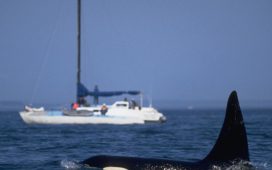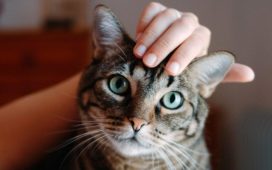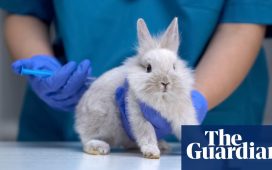A cure for coronavirus could be in sight after a jab developed by the University of Oxford showed promising signs when tested on monkeys.
The vaccine candidate boosted the immune system of Six rhesus macaques without any side effects. They were given half the dose of the same treatment currently being trailed on humans.
According to the study, which also looked at mice, some of the animals had developed Covid-19 antibodies within two weeks, but all had developed resistance to bug by 28 days. The research, which has not been peer-reviewed, says a single dose also helped prevent damage to the lungs, which can be severely affected by the disease.
Scientists said the saw a ‘significantly reduced viral load’ and ‘no pneumonia’ in the respiratory systems of monkeys exposed to the disease compared to those who were not vaccinated. But the study, which also looked at mice, said, reduction in viral shedding from the nose was not observed.
The results are promising for those conducting human trials. However scientists have warned that the effects on the animals would not necessarily be the same on people. Professor of pharmacoepidemiology at the London School of Hygiene and Tropical Medicine Stephen Evans said the findings were ‘very definitely’ good news.
Visit our live blog for the latest updates: Coronavirus news live
He added: ‘The most important finding to me is the combination of considerable efficacy in terms of viral load and subsequent pneumonia, but no evidence of immune-enhanced disease. The latter has been a concern for vaccines in general, for example with vaccines against respiratory syncytial virus (RSV), and for SARS vaccines.
‘This was a definite theoretical concern for a vaccine against SARS Cov-2 (Covid-19) and finding no evidence for it in this study is very encouraging.’
He added that it was not known whether the trials in the macaques would translate into humans.
Visiting professor in pharmaceutical medicine at King’s College London Dr Penny Ward said one concern is that vaccines against CoV species could lead to antibody dependent enhancement – a phenomenon where antibodies end up boosting a virus’ entry into host cells.
The chairwoman of the Faculty of Pharmaceutical Medicine’s education and stanrdards committee added: ‘This is one reason for the lack of a vaccine against the 2003 SARS CoV strain.
‘It is helpful to see that monkeys vaccinated with this SARS CoV2 (Covid-19) vaccine did not have any evidence of enhanced lung pathology and that, despite some evidence of upper respiratory tract infection by SARS COV2 after high viral load virus challenge, monkeys given the vaccine did not have any evidence of pneumonia.
‘These results support the ongoing clinical trial of the vaccine in humans, the results of which are eagerly awaited.’
Oxford University began conducting human trials last month, using a common cold virus taken from chimpanzees to stimulate the immune system.
Another team of researchers form Imperial College London are due to start tests on people in June, using liquid droplets to carry the genetic material they need into the bloodstream.
Both trials are designed to work by recreating parts of coronavirus inside the patient, forcing their bodies to learn how to fight the disease.
Get in touch with our news team by emailing us at webnews@metro.co.uk.
For more stories like this, check our news page.
















